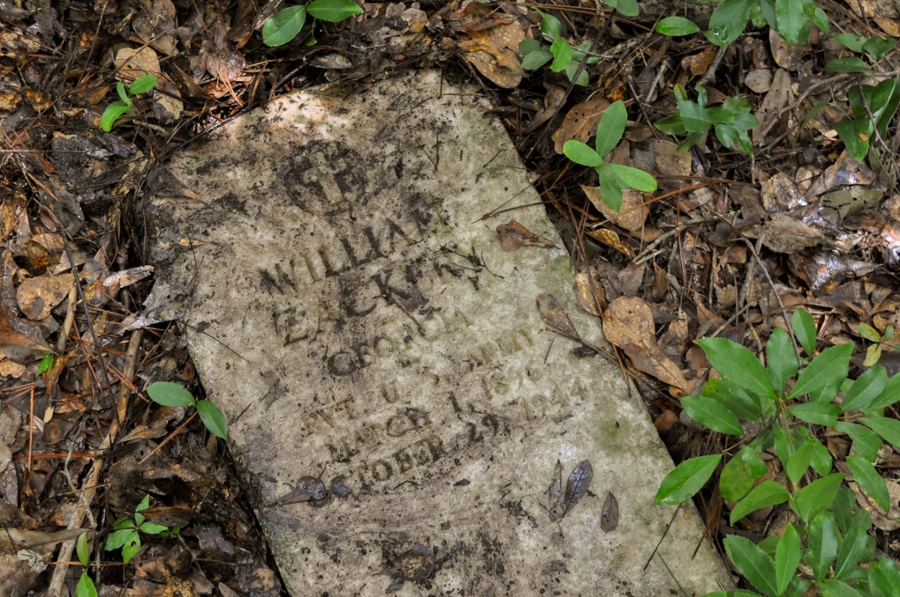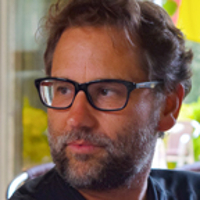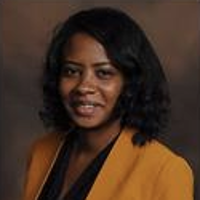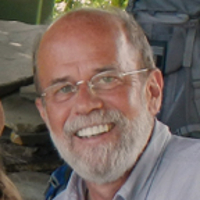The Red Hill Cemetery Project
 In cooperation with the Okefenokee Heritage Center in Waycross, Georgia, the Red Hill Cemetery Project seeks to develop an interactive, publicly accessible, virtual cemetery that documents the history of Red Hill Cemetery and preserves the memory of those interred within it. Over the last half century, the site has suffered from neglect, intentional vandalism, and aborted efforts at redevelopment, leaving the nearly six acre parcel overgrown with brush and pines and marked by open graves and toppled monuments. With as many as 2,000 burials, some of them dating from the 1800s, the cemetery, even in its current condition, memorializes the lives and struggles of an African American community during a period of monumental political, social, and cultural change. By mapping and identifying graves, developing a database of names and dates, and conducting oral histories of surviving family members, the Red Hill Cemetery Project will record often-neglected voices before they fall irretrievably silent.
In cooperation with the Okefenokee Heritage Center in Waycross, Georgia, the Red Hill Cemetery Project seeks to develop an interactive, publicly accessible, virtual cemetery that documents the history of Red Hill Cemetery and preserves the memory of those interred within it. Over the last half century, the site has suffered from neglect, intentional vandalism, and aborted efforts at redevelopment, leaving the nearly six acre parcel overgrown with brush and pines and marked by open graves and toppled monuments. With as many as 2,000 burials, some of them dating from the 1800s, the cemetery, even in its current condition, memorializes the lives and struggles of an African American community during a period of monumental political, social, and cultural change. By mapping and identifying graves, developing a database of names and dates, and conducting oral histories of surviving family members, the Red Hill Cemetery Project will record often-neglected voices before they fall irretrievably silent.
The project will document, catalog, and map this neglected cemetery through oral interviews, archival research, and field and computer mapping applications. The resulting virtual cemetery, complete with interactive maps, documents, and searchable databases, will serve as an important pedagogical, community, and scholarly resource. Publication through the Digital Humanities Institute will foster multidisciplinary approaches to African American history, while allowing students from the various colleges to engage and contribute. At the same time, by participating in the production and dissemination of new knowledge, students will develop valuable research and technological skills essential for academic and career success.
Project Leaders
 Chris Baynard is associate professor in geography and GIS (Geographic Information Systems) in the Department of Economics and Geography. He teaches courses in GIS and economic, cultural and physical geography. Other classes include graduate-level economic geography and GIS, as well as Intermediate GIS and Introductory remote sensing, offered as directed independent study courses.
Chris Baynard is associate professor in geography and GIS (Geographic Information Systems) in the Department of Economics and Geography. He teaches courses in GIS and economic, cultural and physical geography. Other classes include graduate-level economic geography and GIS, as well as Intermediate GIS and Introductory remote sensing, offered as directed independent study courses.
 David Sheffler is an associate professor in the Department of History. Although his research and teaching focuses on the European Middle Ages, as department chair he has also helped to develop hands-on community-based learning projects, including oral histories, digital archives, and spatial history projects.
David Sheffler is an associate professor in the Department of History. Although his research and teaching focuses on the European Middle Ages, as department chair he has also helped to develop hands-on community-based learning projects, including oral histories, digital archives, and spatial history projects.
 Felicia Bevel is an assistant professor in the Department of History. Her research and teaching interests include African American History, U.S. cultural history, and southern studies. Her current book project examines twentieth century American cultural productions that romanticized the Old South and circulated outside the U.S. She also serves on the Digital Humanities Institute's Advisory Board and the Africana Studies Planning Committee
Felicia Bevel is an assistant professor in the Department of History. Her research and teaching interests include African American History, U.S. cultural history, and southern studies. Her current book project examines twentieth century American cultural productions that romanticized the Old South and circulated outside the U.S. She also serves on the Digital Humanities Institute's Advisory Board and the Africana Studies Planning Committee
 Micheal Boyles is the graphic designer for the Center for Instruction and Research Technology (CIRT). As a creative collaborator, he has assisted with the photography, archives, design, and execution of the Red Hill Cemetery Project websites and presentations, as well as partnering on the Digital Humanities Institute projects for the UNF Pilgrimage Project, and Voces y Caras: Hispanic Communities of North Florida
Micheal Boyles is the graphic designer for the Center for Instruction and Research Technology (CIRT). As a creative collaborator, he has assisted with the photography, archives, design, and execution of the Red Hill Cemetery Project websites and presentations, as well as partnering on the Digital Humanities Institute projects for the UNF Pilgrimage Project, and Voces y Caras: Hispanic Communities of North Florida
 Gordon Rakita is a bioarchaeologist and professor of anthropology in the Department of Sociology, Anthropology and Social Work. He also serves as Associate Vice President for Faculty Excellence & Academic Engagement at UNF. His areas of expertise include bioarchaeology, anthropological approaches to mortuary and other ritual behavior, analytical data management and statistical analyses, emergent social inequality and complexity, and evolutionary theory.
Gordon Rakita is a bioarchaeologist and professor of anthropology in the Department of Sociology, Anthropology and Social Work. He also serves as Associate Vice President for Faculty Excellence & Academic Engagement at UNF. His areas of expertise include bioarchaeology, anthropological approaches to mortuary and other ritual behavior, analytical data management and statistical analyses, emergent social inequality and complexity, and evolutionary theory.
